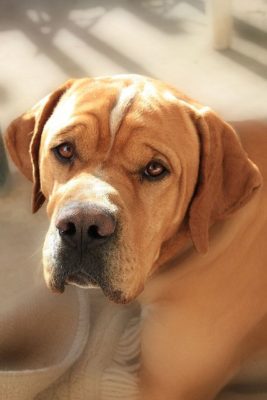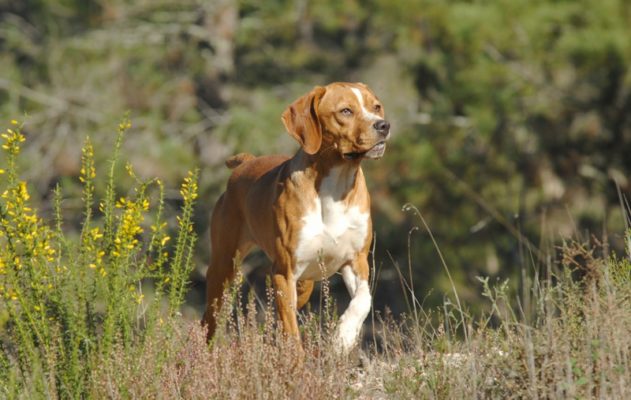Portuguese Pointer
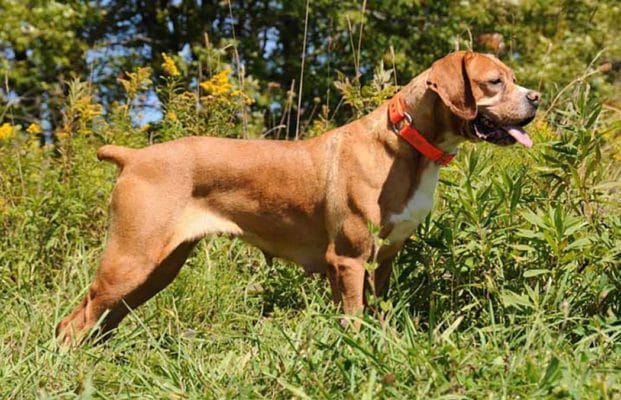
The Portuguese Pointer is a loyal dog that may be a little shy of strangers at first, but it is still an amiable, kind, and affectionate breed. The dog is generally calm and curious but also hardy and resilient. Representatives of the breed are gentle, get along well with children, and be a great pet.
Table of Contents
Breed Information
| Another Name | Perdigueiro Português |
| Origin | Portugal |
| Height | Males 50-58 cm Females 48-56 cm |
| Weight | Males 18-27 kg Females 16-25 kg |
| Fur | Short, thick, shiny |
| Color | White, yellow |
| Lifespan | 12-14 years |
| FCI Classification | Pointing Dogs |
| Group | Dogs for protection, dogs for hunting, dogs for children |
| Price | From $300 |
Breed Photos
Origin History
The Portuguese Pointer is descended from the Spanish Pointer, which was originally used to develop the breed. The Portuguese Pointer was first described in the literature in her native Portugal in the twelfth century and then in works of art in the thirteenth century. The breed was originally used to find games alongside a falcon or hawk, killing the prey. Although it was used as a versatile dog, it was most often taken to hunt grouse. The breed is well adapted to the climate, terrain, and types of game in Portugal.
The Portuguese Pointer was introduced to England in the 18th century. Although it was smaller and more stocky, it influenced the development of the English Poynter; some of its characteristics can still be seen today. The modern type of Portuguese Pointer was established in the early 1900s when the breed was in danger of extinction, and a group of breeders worked together to restore its numbers. Today, the breed is still used as a working dog but is also kept as a companion. It is used to excel in sports such as flyball and agility, which require athletic ability.
Appearance
The breed is of medium size, 48 to 58 cm at the withers, and weighs from 16 to 27 kg. Bitches should be slightly smaller than male dogs. The Portuguese Pointer is a dog of proportional size with a slightly curved neck of medium length that leads to solid and well-curved shoulders and straight forelimbs. The back is broad, the hips powerful, the tail thick at the base, narrowing to its end. The coat is short, smooth, and by the standard, it comes in two colors: white and yellow.
He has a “square” muzzle, which is in proportion to the dog’s overall size. The eyes are usually brown, large, oval. The ears are medium-sized, set high. Their position indicates how attentive the dog is. The Portuguese Pointer moves easily and elegantly, giving the impression of strength and grace.
Character
The Portuguese Pointer is a loyal dog that may be a little shy of strangers at first, but it is still an amiable, kind, and affectionate breed. The dog is generally calm and curious but also hardy and resilient. Representatives of the breed are gentle, get along well with children, and be a great pet.
The Portuguese Pointer is a very sociable dog breed and is partial to human companionship, so that it may suffer from separation anxiety. This breed is not usually a guard dog by nature, but it will use its bark to warn of danger.
Care
The Portuguese Pointer has a short coat that does not require special care. The breed sheds throughout the year, but periodic brushing will suffice. The breed may be prone to ear infections, so ears should be checked regularly and kept clean to reduce the chance of developing infections.
Training
The Portuguese Pointer has an irresistible desire to please its owner. He usually learns quickly with loyal training using positive reinforcement methods. It means that training and memorization are generally not a problem, nor is house training. Puppies should have a routine and plenty of free access to open space.
The Portuguese Pointer usually gets along well with other dogs when socialized from an early age. Because of his hunting instincts, he can see small pets as his prey.
Common Diseases
The average lifespan of the Portuguese Pointer is 10 to 12 years. The British Kennel Club classifies it as a breed of the first category without any special concerns. It is a healthy breed and is not known to have any common health problems. Still, you should check your dog from time to time for the following conditions:
- hip dysplasia;
- diseases of the patella;
- ear infections;
- eye disease;
- autoimmune diseases.
Nutrition
The Portuguese Pointer needs high-quality dog food. Any diet should be appropriate for the dog’s age (puppy, adult, or senior). Some dogs are prone to obesity, so watch your dog’s calorie intake and weight level. Treats can be an important element in training, but large amounts can cause obesity. Clean, fresh water should be on hand at all times.
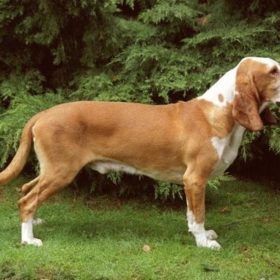 Sabueso Español
Sabueso Español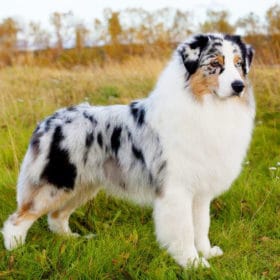 Australian Shepherd (Aussie)
Australian Shepherd (Aussie)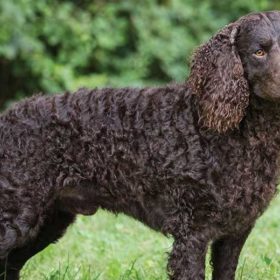 American Water Spaniel
American Water Spaniel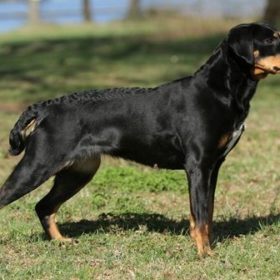 Smaland Hound
Smaland Hound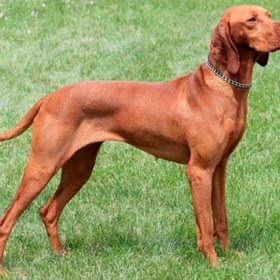 Vizsla
Vizsla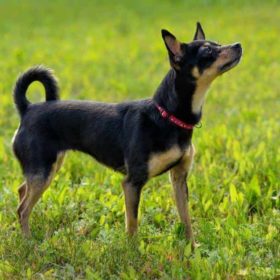 Russkiy Toy
Russkiy Toy
